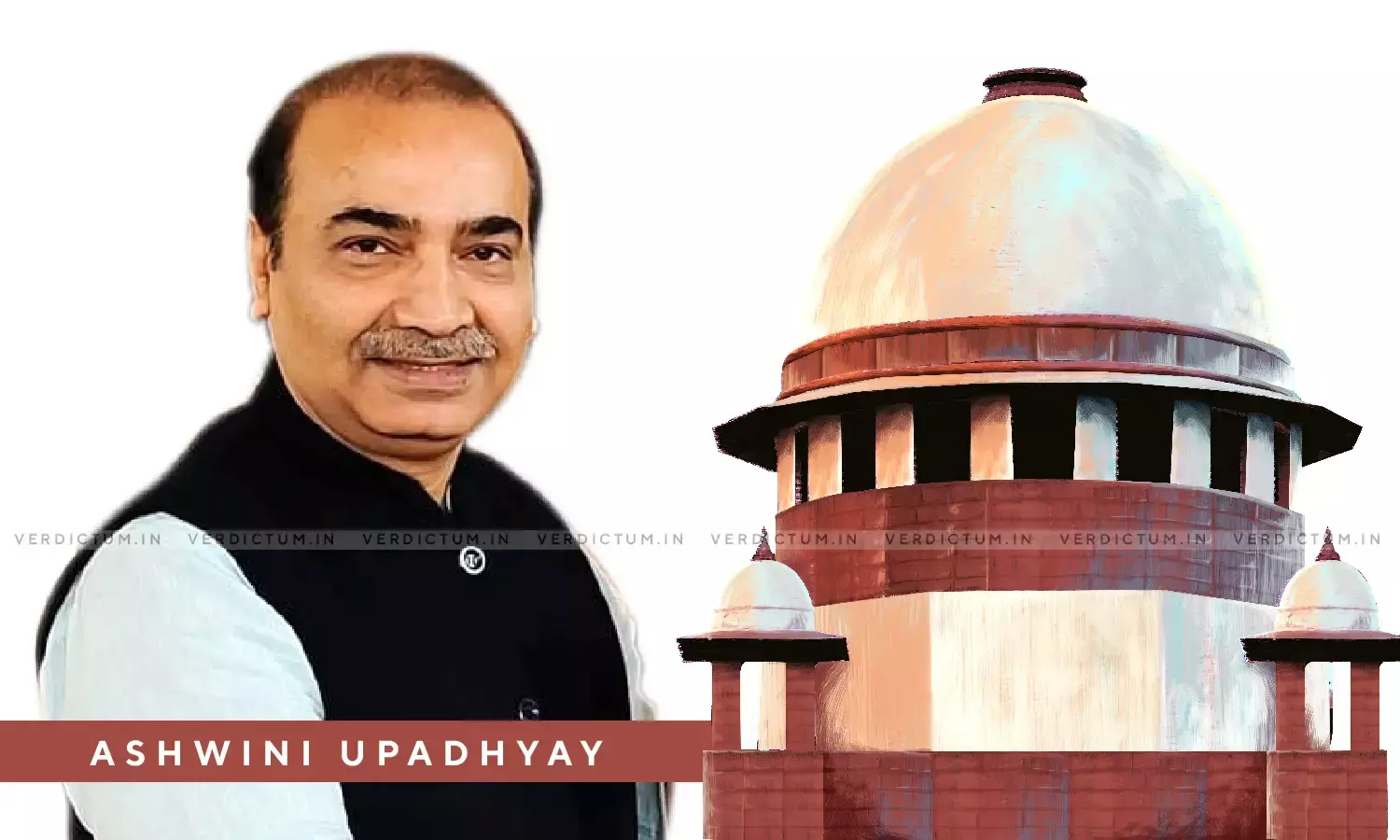Supreme Court Issues Notice In PIL Seeking Ban On Persons Charge Sheeted For Serious Offences Contesting Elections

The Supreme Court has issued notice to Home Ministry, Law Ministry and Election Commission on a plea seeking a ban on persons from contesting elections who have been charge-sheeted for serious offences.
The Bench of Justice K. M. Joseph and Justice Hrishikesh Roy issued notice on the PIL today.
The Public Interest Litigation filed by Ashwini Kumar Upadhyay seeks directions from the Court to direct and declare that the person against whom charges have been framed in serious offences cannot contest election for the Parliament and State Legislature.
The Petition filed through Advocate Ashwani Kumar Dubey states that the Centre has not taken any steps to debar criminals from contesting against whom serious charges have been framed.
The Petition mentions that the facts constituting cause of action accrued when out of 539 winners of 17th Lok Sabha Election, 43% declared criminal cases against them. The Petition points out that there is an increase of 44% in the number of MPs with declared criminal cases since 2009.
"…159 (29%) winners in Lok Sabha 2019 Elections have declared serious criminal cases including cases related to rape, murder, attempt to murder, kidnapping, crimes against women etc.", the Petition stated.
The Petition also stated that "The injury caused to people is large because of criminalization of politics is at extreme level and political parties are still setting up candidates with serious criminal antecedents. Therefore, voters find it difficult to cast their vote freely and fairly though it is their fundamental right, guaranteed under Article 19."
The Petition further averred that the consequences of permitting criminals to contest elections and become legislators are serious for democracy and secularism.
"…during the electoral process itself not only do they deploy enormous amounts of illegal money to interfere with the outcome, they also intimidate voters and rival candidates.", the Petition stated.
"…once they gain entry to our system of governance as legislators, they interfere with, and influence, the functioning of the government machinery in favor of themselves and members of their organization by corrupting government officers…", it added further.
The Petitioner has proposed that in accordance with the recommendations in the 244th Report of Law Commission on the disqualification proposed therein, a definition should also be introduced in para 2- "candidate with criminal antecedents" means a person against whom charges have been framed at least one year before the date of scrutiny of nominations for an offence with a maximum punishment of five years or more.
It was averred that candidates for judgeship of the superior courts or for Indian Administrative Service would not be considered if there were criminal cases pending against them. It was stated that the functions performed by the legislators are vital to democracy and there was no reason why they should be held to lower standards than judges or IAS officers.
The Petition further stated that the separation of power cannot prevent the Supreme Court from passing directions to address the systematic problem of growing criminalization of politics and the political system without breaching the principle of separation of powers.
Cause Title- Ashwini Kumar Upadhyay v. Union of India & Ors.

